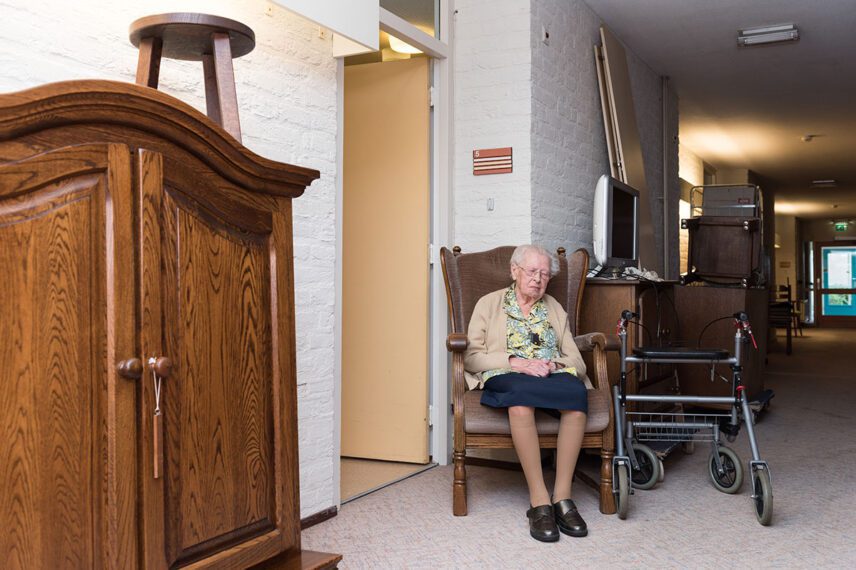A Basic Guide to Nursing Home Abuse Compensation

Nursing home abuse occurs in many different ways, including emotional, financial, physical, sexual, and negligent behavior. Unfortunately, for the victims of nursing home abuse, this misconduct often goes unreported or unpunished, allowing the abusers to continue their mistreatment of the elderly.
However, there is hope. Let’s take a look at the definition of nursing home abuse and neglect, and what you can do if you or a loved one has experienced either.
What is Nursing Home Neglect?
Neglect is a specific type of abuse. Nursing home residents have the right to live in a safe, clean environment where they are treated with dignity and respect. Neglect occurs when a resident’s basic needs are unmet, such as personal hygiene, medical care, and emotional well-being. Neglect typically stems from inadequate or poorly trained staff members. Forms of neglect include:
- Failing to bathe residents
- Failing to clean bedding or clothing
- Not tending properly to limited mobility residents, leading to bedsores
- Causing dehydration or malnutrition by not monitoring water or food intake
- Failing to provide social activities to residents
- Not providing adequate medical care
What is Nursing Home Abuse?
Nursing home abuse, unlike neglect, is far more intentional and causes direct harm to the patient. Forms of abuse include:
1. Physical Abuse
Restraining, hitting, slapping, or other physical forms of punishment are acts of intentional abuse.
2. Sexual Abuse
Sexual abuse includes giving unwanted sexual attention to a patient or intentionally sexually exploiting them. Since consent cannot be given by patients with dementia or other cognitive disabilities, any type of sexual advances can be a form of sexual abuse.
3. Psychological Abuse
Forms of psychological abuse include things like yelling, shaming, insulting, humiliating, or verbally attacking the patient.
4. Financial Exploitation
Financial exploitation happens when a caregiver takes advantage of a resident’s financial assets and uses them to increase their financial gain. This can include theft, persuasion to handle their banking accounts, or applying for credit in their name.
What are the Signs of Nursing Home Abuse or Neglect?
It’s essential to pay attention to any warning signs you may see in the behavior of your loved one, the nursing home staff, or the condition of the facility itself. Signs may be subtle or obvious, so never dismiss anything that feels off. Some of the major hallmark signs of abuse include:
- Broken bones or fractures
- Bruises, scrapes, or welts
- Bedsores
- Infections
- Dehydration or malnutrition
- Changes in mood
- Withdrawn Behavior
- Refusal to eat or take medication
- Weight loss
- Poor hygiene
What To Do When You or a Family Member Has Experienced Nursing Home Abuse
Victims of nursing home abuse can file a police report or report the abuse to Adult Protective Services, where potential criminal charges may be pursued against the responsible party.
If criminal charges cannot be pursued for any reason, then the victim is also eligible to file a civil lawsuit against the nursing home facility. While both criminal and civil suits may be held before a jury, the results are not the same. Civil cases differ from criminal cases because criminal cases result in punishment, like jail time or probation. However, civil cases are settled through financial compensation.
So what other things are essential to understand about filing a civil claim against a nursing home? Below are some of the top pieces of information you should know about nursing home abuse lawsuits.
Filing a Nursing Home Abuse Lawsuit
If a senior citizen who is the victim of nursing home abuse is mentally capable of filing a suit on their own behalf, they are legally allowed to do so. If they are not, family members can file suit for them. A lawsuit will help the victim to receive compensation for the following damages:
- Medical bills
- Physical therapy
- Counseling
- Pain and suffering
- Expenses of transferring to a new nursing home
- And any other damages sustained as a result of the abuse
The Civil Lawsuit Process
Civil lawsuits usually take around 18 months or so to be completed from the time a claim is filed to the moment a verdict or settlement is reached. If you want to know whether or not you have grounds for a lawsuit, it’s crucial to seek a case evaluation from an experienced attorney.
Typically, to proceed, your case must prove three things:
- The victim was older than 65 and considered a “dependent adult”
- The nursing home facility abused or neglected the victim
- Because of the abuse, the victim suffered damages
If these three elements are proven, your claim will proceed to a lawsuit. During a lawsuit, the typical process includes the following steps:
Pleadings/Filings
Both the plaintiff and the defendant file paperwork explaining their version of the story.
Discovery
The two parties present evidence to support their pleadings, such as documents, witnesses, crime scene examination, etc.
Trial
If the two parties cannot agree to terms of settlement outside of the court, the case moves into a trial. During this phase, the plaintiff and the defendant will present their case and evidence in front of a judge or jury who will determine the verdict.
Appeal
If either the defendant or the plaintiff does not agree with the verdict, they may file an appeal to an appellate court, which will look for errors made throughout the entire legal process. If they find an error, they will then determine an outcome, be it reinforcing the previous verdict, overturning it, or calling for a new trial to be held.
Conclusion
Deciding to place your loved one in a nursing home is a difficult decision, and finding out that the place you entrusted with their safety has harmed them is an incredibly challenging thing to go through. The best action you can take to ensure this abuse doesn’t occur to another person again is to hold the responsible party accountable for their misdeeds. By choosing to file suit, you can receive financial compensation for the damages that your loved one suffered. A lawyer specializing in elder abuse will skillfully guide you through the legal process and ensure the best settlement or verdict is reached.






